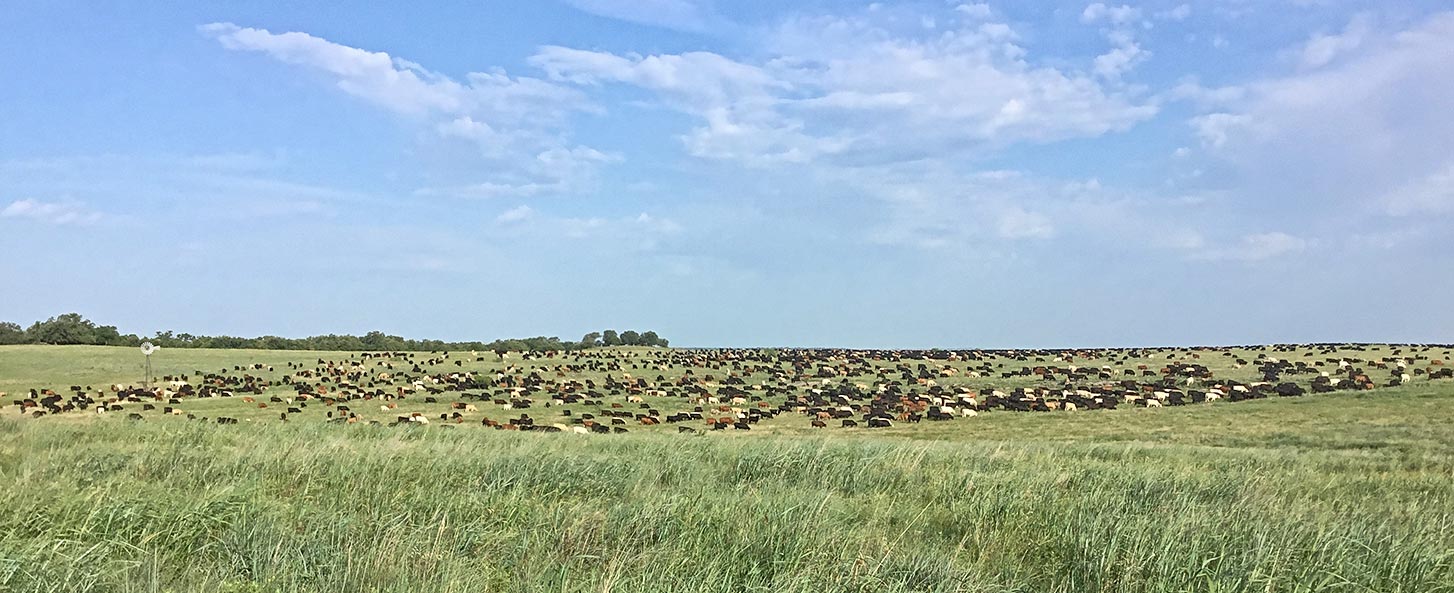Alas! Where have the first four months of 2017 gone? I had a stated intention for 2017 to write routine monthly blogs. It's not that I think what I have to say will change the world but writing helps me see the world with a clearer and cleaner perspective. Given that Holistic Management plays a large part in our daily life I want to explain and provide examples for myself in clear and clean terms the principles and practices that are the foundation of Holistic Management. The year may be one third over but it isn't too late to start this endeavor. All credit for the initial thinking goes to Allan Savory and to Holistic Mangement International for delivering the message. The interpretation, characterization, and application shared in this blog are all mine to own. Here goes!
The first principle in the Holistic Management framework is "Nature Functions in Wholes". We've all heard the saying 'the whole is greater than the sum of its parts'. Inherent in this saying is a dynamic that implies that any action or decision taken by one 'part' or individual or entity has an impact on other 'parts', individuals, entities, and/or environments. I often fail to take into account that my actions and decisions have consequences beyond me personally, my immediate family, or the ranch. We do not operate or function in a vacuum; we are not 'parts'; we are simply pieces or patterns of a lesser whole or community that we manage within a greater whole or community that we are members of.
Savory acknowledges Jan Christian Smuts, a South African statesman and scholar influential in the first half of the 20th century, as one who most influenced his thinking. Smuts is attributed with coming up with the term holism in his 1926 book Holism and Evolution. Examples of how nature functions in wholes are numerous and explanation is clear in Savory's book Holistic Management.
A personal example is one that I refer to as "the three pots". When we first moved to the ranch I kept track of progress or setback through the lens of three pots: my pot of resources that I held in my name, a pot that belonged jointly to Emry and me, and a pot that I called the cattle operation. Yes, this sounds a whole lot like 'what's mine is mine and what's yours is mine'. I was fiercely protective of 'my pot'. If there was a lean cattle operation year or a capital investment that we jointly made and 'my pot' had to be tapped, I grew anxious and miserly and operated out of fear. After years and I mean years I finally experienced the freedom from understanding all three pots made up one whole: one wonderfully expanding, nurturing, and abundant whole.
This newly found holistic perspective influences how we manage our resources, our relationship, our individual selves, and our roles in the larger community we live. On a personal level, we are able to bypass or eliminate sensitive discussions about finances and whose pot is increasing or diminishing. Our financial discussions are much less personal and much more productive. We've made decisions regarding capital improvements backed by the combined whole such as a new house for our ranch hand in the context of the value it adds to the ranch facilities and well-being for our employee.
In the next blog I will share another example of how "Nature Functions in Wholes" by describing how the drought of 2011 forced us to make a managment decision that has had impact at the whole we call the ranch and in the broader environmental whole in which we live.


